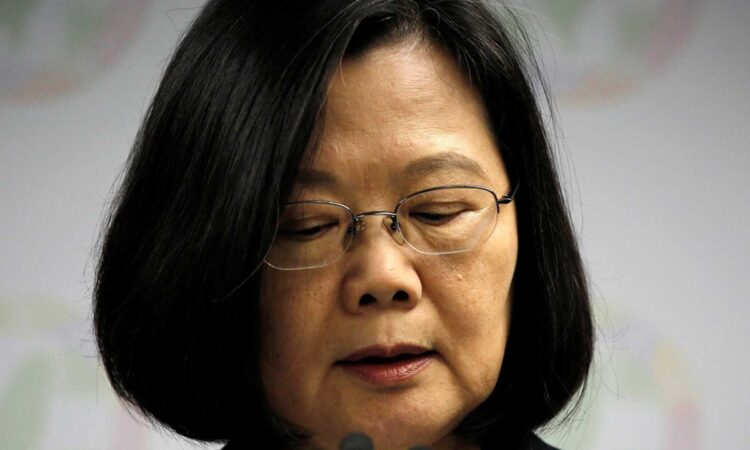

Tsai Ing-wen Photo:VCG
The motive of any country to develop official ties with the island of Taiwan under the cover of boosting economy and trade is impure and twisted.
Taiwan island and the UK on Wednesday held a high-level meeting in London and signed a new Enhanced Trade Partnership. The Chinese embassy in London said in a statement that China has always firmly opposed any form of official contact between countries that have diplomatic relations with China and China’s Taiwan region.
This is not the first time the UK government and politicians have taken advantage of the Taiwan question, which always put the China-UK relations at risk. In the joint statement after the UK-Japan foreign and defense ministerial meeting on Tuesday, Taiwan was mentioned several times. In August, a report from the UK parliament’s Foreign Affairs Committee stated that Taiwan is “already an independent country.” Liz Truss, the short-lived Conservative prime minister, visited Taiwan in May at the invitation of a secession -leaning think tank.
He Zhigao, a research fellow with the Institute of European Studies, Chinese Academy of Social Sciences, believes that two reasons are behind the UK’s bad records regarding the Taiwan question.
First, as a loyal US ally, the UK has been following the US closely to hollow out the “one China” principle, which is part of the entire chain of the US’ containment strategy against China. In the eyes of the US, Taiwan is a chess piece that can be used to suppress China, and the US policy toward Taiwan is solely based on the US’ own interests and calculations, while the wellbeing of the Taiwan people and the prosperity of Taiwan never come across the mind of the US.
Second, the UK is conspicuously worried about its position in Europe and its declining influence after Brexit. Although it touts its “Global Britain” ambition, there have been no notable results. This indicates that there is a huge gap between the UK’s strategic objectives and the means it has to achieve those objectives. The UK then chooses such a cheap card as Taiwan, but puts itself into an embarrassing situation – it caters to DPP authorities’ purpose to realize independence, while at the same time harms its relations with Chinese mainland, which is among the UK’s largest export markets.
From Taiwan’s perspective, the Democratic Progressive Party (DPP) authorities take any “breakthrough” in its trade relations with a country as its political and “diplomatic” achievement. Tong Liqun, a research fellow at the Institute for Taiwan, Hong Kong and Macao Studies of the Shanghai Institutes for International Studies, told the Global Times that having a trade dialogue and signing a new trade agreement with the UK is a tool used by the DPP authorities to gain political point. As the UK will soon join the Comprehensive and Progressive Agreement for Trans-Pacific Partnership, Taiwan’s relationship with the country could assist with its own bid to join, so as to expand its “international” space.
“By developing economy and trade on the surface, the UK and the DPP authorities have their own agendas to pursue that they would rather keep in the dark,” Tong told the Global Times.
The Taiwan question is China’s red line. Once it is touched by any country that wants to lever it to gain political capital, it inevitably affects its relations with China. The Taiwan question is related to national sovereignty and territorial integrity, and is a matter of right and wrong that countries that interact with China must understand. It would be self-deceit if one claims that enhancing substantive relations with Taiwan by using economic and trade cooperation as an excuse is not a politically complex issue, or that the consequences are nothing serious.
So when Estonia, a member of the EU, recently decided to “accept the establishment of a non-diplomatic economic or cultural representation of Taipei in order to promote the respective relations,” it reflects that the Baltic country is playing an edge ball.
Tong believes that behind Estonia’s decision is the US’ tacit consent and the lobbying of DPP authorities.
“It is indeed an opportunistic move,” said Tong.






